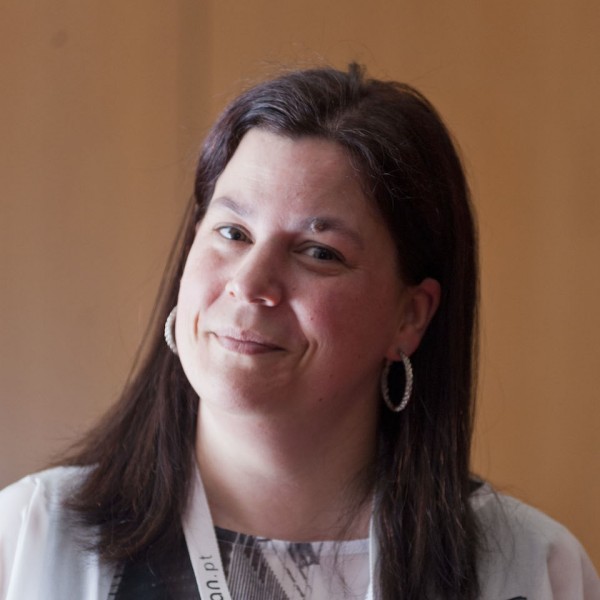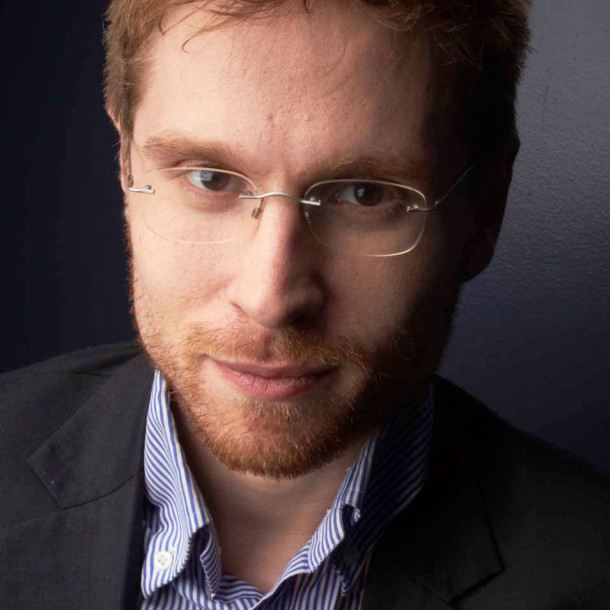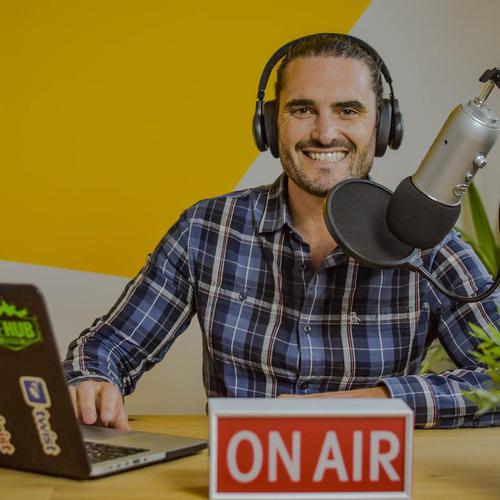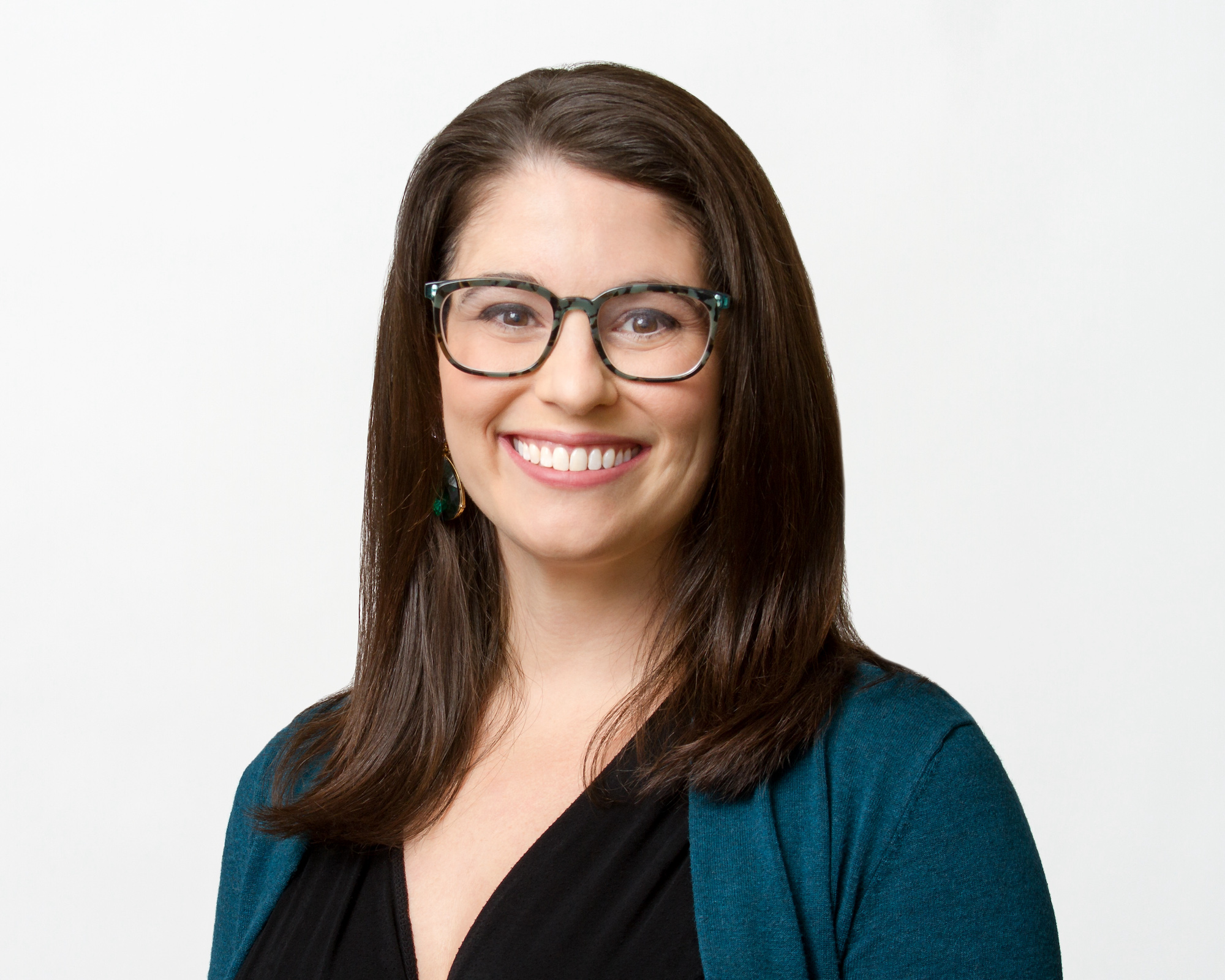Knowledge management is a field that’s been around as long as two people have worked together, but it’s undergone a lot of shifts.
Ana Neves is a knowledge management consultant. She talks about the value of knowledge in our companies and how we don’t collect it very often. We do an event and all the knowledge just spills over and stays at the event. Or we try a new design sprint, but nothing gets documented. Valuable knowledge is just thrown around like clothes in a teenager’s room.
Knowledge management is more than just documentation
Ana says companies need to think holistically about knowledge. Not just how it is recorded, but how it is stored, accessed, and used.
“What you actually can document is just a tiny portion of what you effectively know,” she said.
It’s an important discipline to formalize, or else no one will do it.
Organic vs digital knowledge management
At most workplaces, knowledge management is a person. It’s someone sitting in a seat that’s been there for 25 years and knows all the secrets. She has a vast amount of knowledge available to her, but it’s hard for others to access and it will get lost if she retires or moves on.
Digital knowledge management is a much safer option, but access and recording are big hurdles. Most people would still rather move on than stop and reflect on what they learned from the past. And if all that knowledge is just on a text file in a shared folder, who knows if anyone will ever access it?
How to use knowledge management
Ana shared a great use of knowledge management in a company. They had a process for starting a new project that ended with these two questions:
- What have we done previously that can inform this project of yours?
- Who can you talk with or have a conversation with about that learning?
Implementing and codifying this kind of knowledge retrieval helps everyone.
Social Now
Ana puts on the Social Now event every year, but had paused earlier editions due to COVID-19. Now Social Now is back and ready for everyone to experience. It’s a one-of-a-kind event that puts you inside a real simulated organization and lets you interact with how all sorts of practices and principles help create the best collaboration possible.
And it’s in Portugal, so what could be better?
Register now! Use the code TDW for 10% off!
Welcome back to The Digital Workplace podcast. Today our guest is Ana Neves. She is the founder of Knowman. She’s the convener of the Social Now Conference. Ana, great to have you on the show.
Thank you, Neil. Thank you so much for the invitation to be here. It’s great to be a guest in the podcast that you usually listen to. So it’s great.
It’s true. We’ve been friends for a while. We connected maybe a few years back, it seems like, and have been following each other’s stuff for a while. So it’s great to talk publicly like this, right?
Yes, yes, indeed.
We’re going to get more into what you do and your history. But first, as with all of our guests, as you know, we do need to confirm that you are a real human. Your CAPTCHA question today is what do you miss most about childhood?
That’s a great one. I guess it’s spending time with my grandmother. And possibly spending a long time being bored or getting bored for not having any screens in front of me. That felt good, looking in hindsight.
That’s true. I remember, there were so many of those road trips that are just you just staring out the window. That’s all there is to do.
Yes. And that was weird and felt very boring at the time, but now feels great to have that privilege of being disconnected from the world in that sense.
The privilege to be bored, that’s a whole show in itself. Well, great. Ana, tell us a little bit about yourself, a little bit about your journey, and how you got to where you are now.
I have a degree in computer science. As I usually say, I derailed to the soft side. So I still work a lot with platforms, digital platforms, but mostly in the sense of the support they can provide for organizations to improve their knowledge sharing practices, their internal communications, help build communities. So that’s very much my focus nowadays. So I’m a consultant now. I’ve worked as a cultural change manager in a British bank. I worked in the National Health Service in the UK as well as a knowledge manager. But now I’m very happy with, again, another privilege that I feel which is working with different companies and helping them with their knowledge management efforts.
Okay, so for someone who is unfamiliar to that term knowledge management, how do you explain that to them briefly?
For me, knowledge management is really the management of our organizational processes, people, and infrastructure, which is what I call the three pillars, all in the sense of improving knowledge processes to help organizations achieve their goals. So knowledge management sometimes is seen as a fad. For me, it’s something which is very, very anchored on helping the organization achieve their objectives. So that’s the only reason for doing it. And in terms of the knowledge processes is about what can we do inside the organization to improve how organizations acquire knowledge. Maybe it’s about innovation, maybe it’s about hiring new employees, maybe it’s about learning opportunities and development opportunities, but also how they make that knowledge circulate and be shared, making it accessible, validating it, which is also really important, and finally, being able to use it. What can we do to make knowledge available and create the right culture, for instance, for people to want to use it, as opposed to reinventing the wheel, for instance?
Let me jump back even to our question about being a kid and a child. It feels like knowledge, from the time before you’re in school, you’re just out learning stuff and picking up on things. And it’s very unstructured, but you’re still learning a lot figuring out how to do it. Then eventually, you’re put into more of a structured way of learning, and this is the knowledge you have to have. And then that goes for a while. How do you see knowledge management in terms of a company lifecycle like that? Is there a time, like in a startup stage, when knowledge is just passed around unstructured like that, but you’re still learning? Versus where it seems more regimented and bigger enterprises or it’s too unwieldy once you get to that “university” level? How would you make that comparison?
I think the learning phase is ongoing. It happens whether you’re a small company or a big company. It doesn’t really matter. And the fact that it’s wieldy or not just doesn’t really matter. Because what it is important, for me, at least, when you’re working with knowledge management is about creating these processes and the infrastructure. So that knowledge management becomes part of the way you work rather than something that needs to be taken care of. Unfortunately, or fortunately, I still see that knowledge management is something that needs to be formalized. Because thinking that is everyone’s responsibility so everyone will do it, it’s a lie. It’s something we said to fool ourselves, I guess. But yeah, ideally, you create these infrastructure, these processes so that it becomes part of everything that each person does. And that means, if you feel that you have a knowledge gap, you just haven’t defined what you need to do to learn, and then you learn, and then you share.
And if you’re working on a project, you make sure that you acquire the relevant knowledge before you start a project. But then you share it during the project, and you share it at the end of the project. So it’s just all about these things. And it doesn’t have to be something really scary or cumbersome, or a lot of additional work. It’s just about making it part of what you do. And just to give you a very, very simple example, an organization had a process in place so that every person who wanted to start would have to fill in this form saying, what was the aim of the project? What would be the budget, the resources? Just added one question there, or actually two questions. What have we done previously that can inform this project of yours? And who can you talk with or have a conversation with about that learning? So it’s just these little things that make sure that these knowledge, the habits, or the principles, or the practices around knowledge, are part of everything the organization does.
That’s brilliant. I find that, like you said, it does need to be formalized. Because we do kid ourselves to think that we are actually learning from all these things that we implement. We’re not sharing either. So I think the formalization and the sharing across teams is essential, and something that we just have to be honest with ourselves. It’s not normal or not natural for us to do, and we’re quite bad at it. What do you feel like are some of those signals that help us to realize that we need to take knowledge management more seriously?
Well, so many. One, which is even a very selfish one, if we think about it, is you looking at a team in a different department or in different office, in a different country doing exactly what you’ve done in the past, and failing to do so or even committing the same mistakes that you’ve committed before, or doing it worse than you’ve done. This is from a very selfish perspective, and at a time, when we talk so much about employee engagement and satisfaction is really frustrating. It’s the organization ignoring your own knowledge, your own work, and your own experience. So that’s from a very selfish perspective. But if you think of the organization itself, that’s a wasted opportunity of using the learning from previous projects, probably repeating a lot of the work that was done, maybe committing the same errors. So that’s wasted money. And it’s not a coincidence that a lot of the most well known projects around knowledge management are in the oil sector. Because the wins or the potential losses of not doing knowledge management properly are huge and can mean lives being wasted, or being lost rather, resources being wasted, a lot of time in terms of projects that take a lot longer than necessary. So there’s a lot of money involved. And knowledge management can really prove beneficial there.
Yeah, that makes a lot of sense. And a lot of software companies you hear fail often fail fast, all those kinds of things. But we rarely talk about how do we actually learn from those mistakes. And we feel like it’s fine because we’ll just do something new. It didn’t hurt anybody. But a lot of times it does and you mentioning the oil industry is a great example of that.
Yeah. And it can hurt people in different way, like in the motivation way, so if you feel that you know so much and your company is totally ignoring your knowledge, that can feel very hurtful for some people. So that is also really important to consider when looking at these things. People like to feel valued and add value in that way as well.
Yeah, definitely. To me, there’s a difference between saying, hey, we have this data around us, we talk about big data a lot. But knowledge is actually seeing all that data connected in a certain way and being able to pass that on. That’s great.
So very much so, yes, yes. Good point.
So what have been some of the trends and shifts you’ve seen as knowledge management, I mean, for some extent, it’s always been digital, but the new tools that are out there now that people are working more remotely than they had been before, what are some of the changes in shifts you’ve seen as knowledge management has become more digital?
I don’t know if I see a lot of changes, at least conscious changes, what I’ve seen, certainly since the pandemic started, and so many people started to work remotely using these digital platforms as the anchor, as the basis for their work. It’s a huge opportunity for knowledge management because lots of the interactions or many of the interactions that used to happen maybe on your Lyft ride or on the corridors or by the famous water coolers, those conversations are now happening online, and many of them in written format. Those are nuggets, or can be nuggets. They’re unstructured so they’re still, from a knowledge management perspective, a lot more could be done to make the style valuable knowledge and information. But there’s already something better than before. Because it’s in written format. It’s recorded. And sometimes, and that’s why I was saying knowledge management doesn’t have to be a cumbersome thing, sometimes is not just necessarily to have the knowledge recorded. But it’s the knowledge that you need to go to to get access to the knowledge.
So if you have something in a shared Team space where you document or you have this conversation about why we should do this, and not that, that is helpful information to two years, three years, four years down the line, you can trace back your decision making process and know the reasons and who was involved in those decisions. Not from a blame perspective, but from I can talk to Mike or Neil because they were involved in this process. And that’s a great opportunity. Because this is something which is really hard to get in people’s habits and routines normally, but now they’re doing it because it’s the easiest way. And that’s why the asynchronicity of these tools becomes so important and such a rich opportunity. But it’s all down to culture, organizational culture. And I do a Social Collaboration Maturity Benchmark. And we’ve looked at the data. What we see is that people are using these platforms a lot more. But they’re doing a lot of requests for information and answering questions in direct messages. Because the culture is not there yet for them to feel comfortable to respond or to ask questions in an open space. So that is also something really interesting. So that’s why I don’t see that many advances in knowledge management as a result, but there’s a huge opportunity there because of these platforms.
I feel like every company also has a different answer to, where do you keep all the knowledge? Do you just put it into a shared drive? Do you put it into some other work platform? Do you attach it to meeting notes? And how can people access that later? Do you see any good solutions that are good for every team out there in terms of where to keep this knowledge so that it is accessible and not just a huge dumping ground?
I don’t think there’s a right way of doing it. It depends a lot on the type of people who work in the organization, the size of the organization, the type of platforms they have, and the culture in the organization as well. Sometimes it’s more about making sure that the knowledge is spread by a large number of people so that they can tap into it when required. And if I don’t know, I know to go to for information or for that knowledge or for that experience, rather than having it documented. Because there’s also many organizations who have very, very structured approaches to knowledge management. They document lessons learned and good practices and best practices, which is a term I hate, actually, but they record those. But then when it comes the moment of using them, they’re totally ignored, or they cannot be accessed, or they’re out of date. So there’s just, for me, I think it needs to be very simple. It needs to create conditions so that if, Ana, me, I want to start a project and I don’t know the answers, I have the habit of asking around. Someone will tell me, Neil has done that in the past, so I can go and talk to you. So that’s a very informal way of doing it, but sometimes is the best possible way of doing it, because otherwise it doesn’t get done. I don’t know if that answers the question now.
Yeah. And that speaks to exactly it. I think, in a lot of places, knowledge management was Ana, she sits over there. If you want to know how to do it, you go talk to her, or it was Bill over here or it was Rahul or whoever it was. That was where everything sat was in that person’s brain and where it was. There’s a brilliance to that, because a human is able to quickly find that information in their head and tell you exactly what happened. But it’s also dangerous, because what happens when that person leaves, what happens if you can’t access that person right away. So yeah, making that transition from these organic biological storehouses to also having some digital ones. So that’s a big transition.
Certainly it’s a dangerous thing. That’s why the role that these platforms are having at the moment is so key. Because if Neil is the only person who has that knowledge, and if I ask a question to you, on these platforms, and you answer to me through the platform, and now all of a sudden, that knowledge, that information is documented for other people to tap into. And the other thing is what I was saying, it’s just creating processes, moments, activities that encourage that knowledge to be shared, to be accessible to a wider group of people. Because what you actually can document is just a tiny portion of what you effectively know. And what you effectively know is a lot. And what you can share, either by doing a presentation or by guiding me to do my work, my job is a lot richer than anything that you will be able to document. So creating these opportunities, either by mentoring, by budding systems, by doing lunchtime conversations, just encouraging people to write internal blogs, those are informal settings where people usually open up a lot more and are actually able to share a lot more than they would do in a very structured format.
It’s a great point. Because I mean, you could be having a product meeting, and you document the end saying, hey, we decided to go with Feature B. And that’s the end of the documentation. But actually, if you talk to people in the meeting, they’re like, oh, man, that was a horrible meeting, like there’s all this stuff going on. And like, everyone wanted this one, but then this person ramrodded the discussion, and it just went through all these places. And that’s the richness that we miss out on.
Yeah. And all of a sudden, you not only get the outcome of the meeting, but you get all the thinking process to get to that decision. And the thinking process is actually where knowledge is applied. So you start to get to the roots of that knowledge. And that’s where the beauty of it comes from.
Excellent. Ana, let’s take a little shift. By the time this podcast releases, it’ll just be a couple weeks away, but you’re in the ninth edition of Social Now, which is a conference you’ve been running for a long time. And you say it’s always a unique conference. And everything’s unique these days, it seems like now that we’re in this post COVID world. So tell us more about the conference and what’s going on this year.
So yeah, Social Now is unique, I can tell you. So what I’ve done, especially since I’m not a conference organizer, I just happened to organize a conference. What I’ve done was to embed lots of knowledge management principles and practices into the design of the conference. So the conference is anchored on storytelling. So there’s a fictitious company which I created. And although fictitious, it suffers from the real pains that many organizations suffer, so too many meetings, too many emails, junior people who don’t know how to get the help from the more senior colleagues, people repeating mistakes from projects, the things we’ve been talking about really, and some others. One of the characters of this fictitious company, she even blogs about these struggles, these challenges. And what happens during the conference is that pretty much all the sessions are about offering help to this fictitious company.
So we have consultants offering advice on practical things that the company can do. You have a peer assist session, which is peer assist as a knowledge management technique, where we have people from real companies offering advice for this fictitious company, which is about to start an adoption program for their platforms. We also have the vendors, and what we do with the vendors from different tools. So this year, we’re going to have MangoApps, craft boards, Microsoft 365, Guru Scan, and soup analytics. What they do is they cannot even use slides, they have to do a live demo of their tool telling us about the day in the life of the fictitious company. So we have a lot of roleplay embodying some of the characters and telling us how they go through their day using these platforms, bringing them alive. We have a panel. They act as the management board of the fictitious company. So they ask the tough questions to the vendors after their presentations. And how much does that cost? And how is that different from the platform we have? And actually, because everyone is afraid of having the sales pitch presentations from the vendors, participants have flags, and they can raise flags if they feel that the presentation is getting too salesy. And the rule is two flags and the vendor is out, offstage. It never happened. We had one flag being raised.
Do you have the big hook ready to drag them off the stage, right?
Yeah, fortunately, it never happened. It’s quite funny, because vendors get really scared. They get to the room and they ask, Ana, I thought the flags were just metaphorical. No, they’re actual flags. So yeah, the conference is a lot about creating the great conversations and making all this stuff practical by anchoring it on a real company. As a participant, I hate when I go to conferences, and I feel like, oh, yeah, lots of inspiration, lots of big ideas. But what do I do tomorrow? So the whole conference is to to make it participants-centered and what are the values that I want to deliver to participants. And so, that’s how it’s unique.
Excellent. And it’s live this year?
Yes, it’s been always a physical conference. And a lot of the value comes exactly because of that. So last edition was actually in 2019. I had to cancel 2020. And last year, I decided to skip it altogether. And in 2019, I had this participant. She came from Brazil. And she said to me, “Ana, this is like being in my living room having a great conversation with people from all over the world.” So that’s the kind of spirit I really want to create at the conference.
Excellent. And it will be in Portugal, correct?
Yes, sunny Portugal.
All year round, it’s a great place to visit.
Yes, it is. Yes, I’m not partial at all.
Ana, where should people go if they want to learn more about it?
For the conference, it’s socialnow.org. It will be a pleasure to welcome everyone to Social Now. It’s a great place to be.
Excellent. We will put those links in the show notes. Ana, thanks so much. It’s been lovely to talk about this topic. It’s such a big topic. And get excited about the conference, too.
Thank you very much, Neil. Thank you for the invitation.
Ana Neves is the founder of Knowman, a consulting company focused on strategies, activities and digital platforms to improve knowledge management, learning and collaboration in organisations. She has worked with public and private sector companies in different countries.
She is passionate about people and is always seeking better ways for people to learn and interact with each other, building better organisations and a better society.
She is the designer and organiser of Social Now, a conference with a very unique format and which mostly rests on the case of Cablinc – a fictitious company with very real challenges.
Together with Jaap Linssen, she authors the global Social Collaboration Maturity Benchmark.












